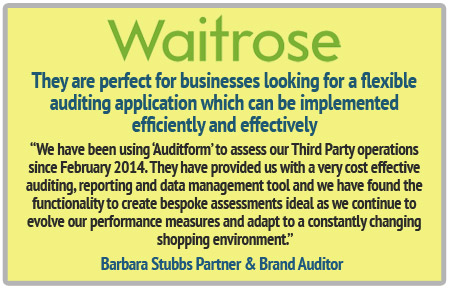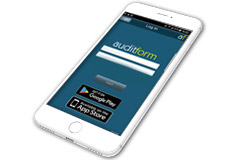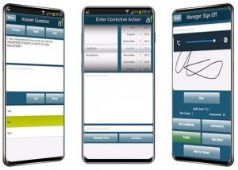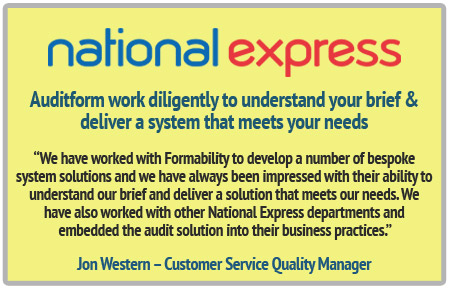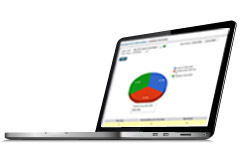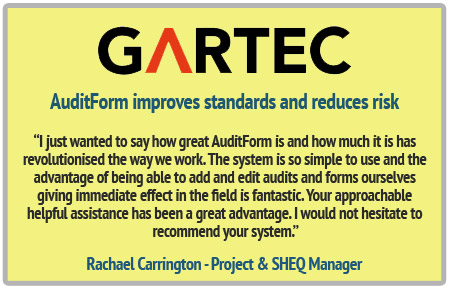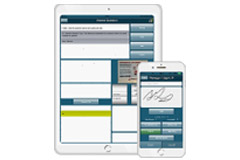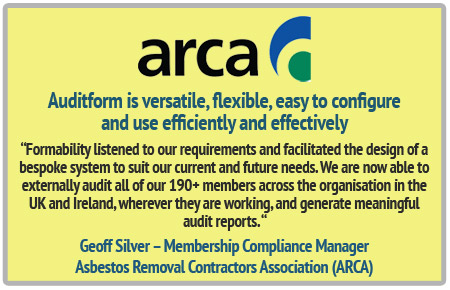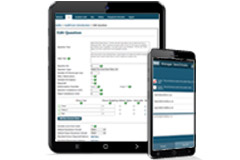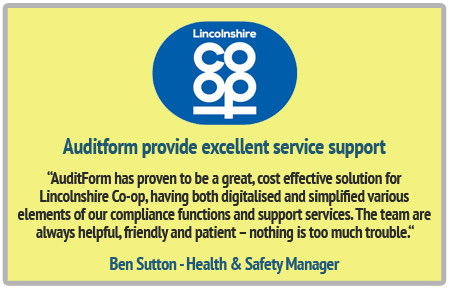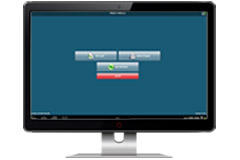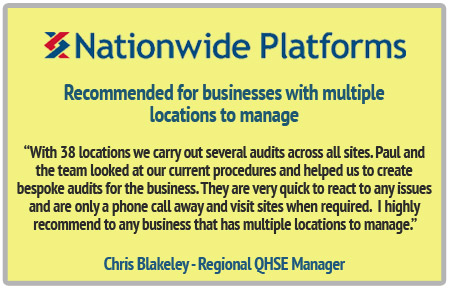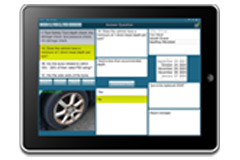Top Audit Tracking Software for Efficient Workflow Optimisation
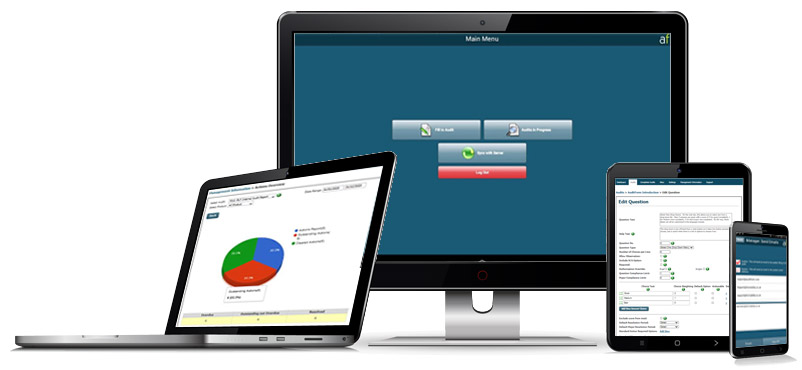
Enhanced Compliance with Audit Tracking Tools
Audit tracking software embeds precision in compliance tasks, elevating the integrity of organisations’ operations, securing a symbiotic alignment with regulations.
With an audit tracking tool, professionals can harness a suite of features – compliance monitoring, risk analysis tools, and audit schedule coordination, essential for maintaining a high-calibre compliance framework that adapts to regulatory shifts with ease.
Sophisticated “issue tracking and resolution” and “audit feedback mechanisms” ensure continual refinement of compliance processes.
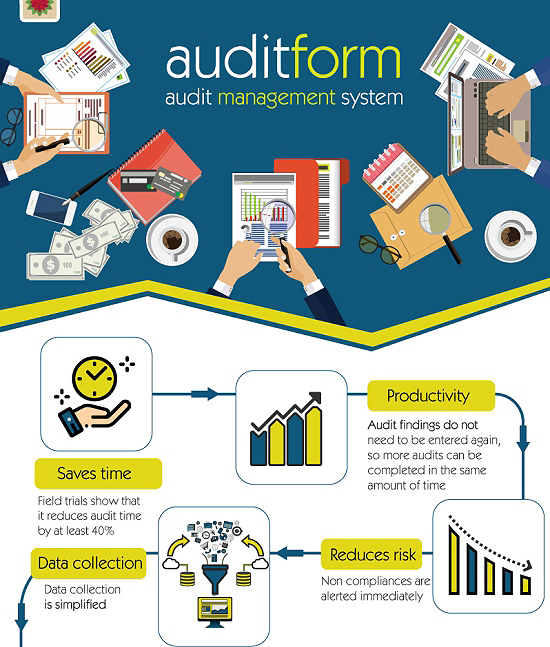
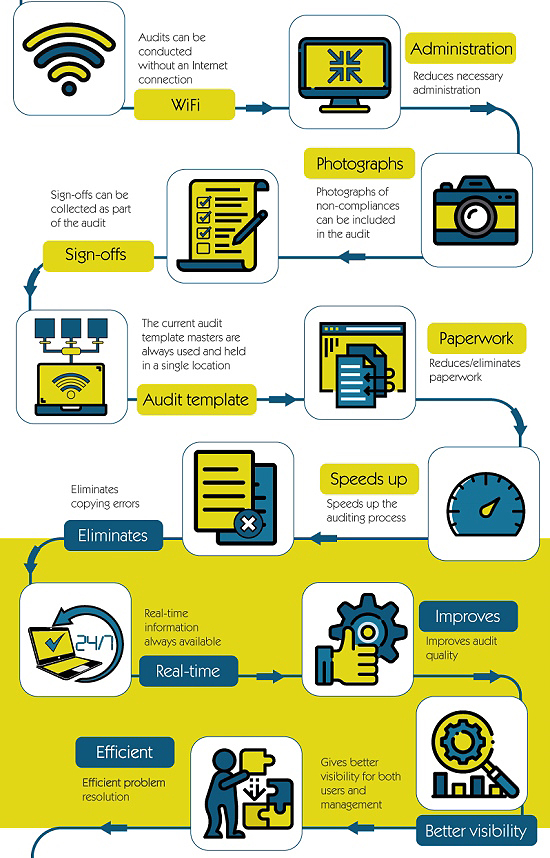
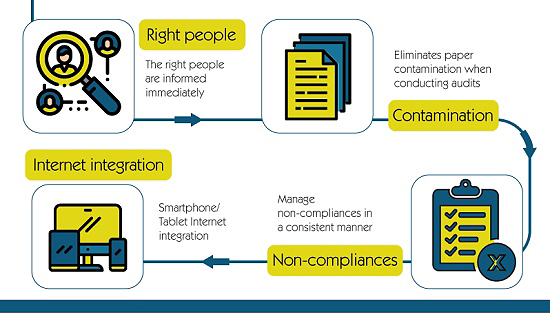
Refining Document Management
Efficient audit tracking software transcends mere storage, enabling dynamic interaction with documents, and ensuring robust version control. Such systems refine the entire lifecycle of documentation, ensuring accuracy and accessibility under a united digital roof.
Adopting premier audit tracking tools expedites retrieval, analysis, and sharing of documents—a “living library” at auditors’ disposal. Thanks to advanced search capabilities, collaboration becomes seamless, vastly diminishing the time spent on document-related tasks.
Document mismanagement can cost firms up to 25% of their revenue.
Leveraging audit issue tracking software within document management frameworks is indispensable. It assures that compliance is intertwined with each document’s journey—from creation to audit history and archives—fortified with security and data protection, ensuring no critical detail is overlooked.
Implementing Risk Analysis Tools
Risk analysis tools are integral to the audit process, serving as the barometer for potential issues and vulnerabilities within a system. The implementation of such tools necessitates a structured and thoughtful approach, ensuring compatibility with existing audit procedures and promoting comprehensive risk assessment.
Moreover, risk analysis tools imbue audit tracking software with predictive capabilities, transforming raw data into actionable insights. By utilising these technologies, auditors can forecast potential compliance issues, integrate risk considerations into audit planning, and prescribe proactive measures. This ability to anticipate and address risks before they materialise is critical in maintaining a defensible audit trail.
Furthermore, these tools are essential in bolstering real-time reporting, task and milestone tracking, and issue tracking and resolution. When operating within an audit tracking tool framework, they empower auditors with accurate oversight of the risk landscape. Such dynamic risk management facilities elevate the efficacy of compliance monitoring and the agility of strategic decision-making.
Conclusively, adopting risk analysis tools into audit workflows is a catalyst for workflow optimization. These tools enhance audit tracking software by providing data analytics and visualization, facilitating audit feedback mechanisms, and offering customizable reporting. As firms continue to grapple with complex regulatory environments, harnessing these sophisticated risk analysis instruments becomes central to fortifying an organisation’s resilience and ensuring that compliance efforts are both robust and agile.
Coordinating Audit Schedules
Efficiency begins with structured schedule management.
In the domain of audit management, precision in scheduling is paramount. Audit tracking software orchestrates the myriad components involved in planning audits, ensuring robust coordination of schedules and alignment of resources. With the aid of these sophisticated tools, audit teams are enabled to navigate overlapping audits and substantiate the audit process without compromising the thoroughness or effectiveness of the examination. Successful scheduling balances the need to cover all critical audit areas with the availability of skilled personnel and stakeholder engagement.
Audit tracking tools empower proactive planning.
Fastidious alignment of audit calendars is crucial to prevent resource conflicts. Audit tracking tools facilitate this by efficiently synchronising activities across departments, ensuring that all parties are informed and prepared. Such capabilities are indispensable for maintaining a harmonious and productive audit environment.
Real-time updates are a cornerstone of responsive scheduling.
The benefits of real-time updates in scheduling are manifold and cannot be overstated. They ensure that all involved parties have access to the most current audit schedules and can adjust plans swiftly in response to any unforeseen changes. Real-time updates allow for rapid communication, preventing scheduling conflicts and fostering a collaborative approach to compliance responsibilities.
Integration capabilities enhance cross-functional collaboration.
With the sophistication of today’s audit environments, the integration of audit tracking software with other enterprise systems is not just a luxury—it is a necessity. Enhanced integration facilitates seamless communication between audit software and enterprise resource planning systems, human resources platforms, and other relevant applications. This technological synergy is instrumental in achieving a unified and efficient approach to audit schedule coordination.
Instantaneous Reporting with Audit Issue Tracking Software
Employing state-of-the-art audit issue tracking software is paramount for auditors keen on harnessing the power of real-time reporting. Real-time data is a game-changer, transforming the landscape of compliance monitoring and workflow optimization by revealing the pulse of auditing activities instantaneously. This immediacy allows for the prompt identification of issues, affording auditors the agility to initiate corrective measures with alacrity. With such software, stakeholders not only have a bird’s-eye view of the audit schedule coordination, but they are also empowered with data analytics and visualization capacities, sharpening the precision of the audits. Moreover, the task and milestone tracking module integrated within these sophisticated tools ensures a continuous alignment with the envisioned audit project trajectory.
Achieving Task and Milestone Clarity
Ensuring clarity in tasks and milestones is critical to effective audit management and workflow optimization.
- Define Clear Objectives: Establish unambiguous and achievable goals for each audit phase.
- Set Measurable Milestones: Break down objectives into quantifiable checkpoints for regular assessment.
- Assign Responsibilities: Clearly delineate roles and responsibilities for the completion of tasks.
- Utilize Visual Tools: Implement tools like Gantt charts for transparent milestone tracking.
- Monitor Progress: Regularly review progress against the audit plan to identify any deviations. Audit tracking tools with milestone clarity offer streamlined coordination of audit activities, ensuring compliance and efficiency.
Enabling Data Analytics and Visualization
Data is the audit’s lifeblood.
The power of audit tracking software is not merely in recording data but in transforming it into meaningful insights. Through the integrated analytics and visualization capabilities, these advanced platforms facilitate an in-depth examination of audit data, revealing patterns, trends, and outliers that may otherwise remain obscured. Consequently, they empower auditors to make informed decisions based on the discernible narratives drawn from data complexities.
Visualization aids in comprehending complex datasets.
Advanced audit software features robust data analytics – tools built to handle vast amounts of information. These capabilities extend beyond traditional data handling, offering dynamic and interactive visualization that translates intricate data into accessible, visual formats. Enhancing understanding through these graphical representations aids in pinpointing areas of risk and streamlining the audit process.
Granular insights can precipitate decisive action.
Dual capabilities of data analytics and visualization are essential for modern audit tracking. They provide a rich analytical context for audit findings, facilitating the communication of complex information in a digestible form. In the rapidly evolving landscape of 2023, such capabilities position auditors at the forefront of strategic decision-making by offering comprehensive insights and enhancing data-driven decision processes.
The Role of Audit Tracking Software in Issue Resolution
Audit tracking software provides a structured platform for intricately monitoring and managing audit-related issues and actions, ensuring timely resolution and documentation.
With functionality for risk analysis tools, issue tracking and resolution, as well as real-time reporting, these systems are pivotal in detecting any inconsistencies, thereby enabling swift action to contain and rectify them.
Powerful audit issue tracking software becomes an indispensable tool, efficiently bridging the gap between identification and remediation of audit findings.
Facilitating Issue Tracking and Resolution
The sophistication inherent in audit issue tracking software represents a formidable force in identifying discrepancies, isolating root causes, and charting corrective actions. Such systems are designed with the sole aim of transforming dusty data trails into dynamic opportunities for organisational advancement. They epitomise the fusion of compliance monitoring and workflow optimization, fostering an environment where issues are not merely flagged, but resolved with precision and traceability.
Industry-leading audit tracking tools are equipped with collaborative capabilities to expedite the resolution process effectively. A commendable feature of audit tracking software is its relentless pursuit of accuracy, removing ambiguity in the path towards compliance. It employs a systematic approach, ensuring that no stone is left unturned in the process of resolving audit issues, thus upholding the standards of thoroughness and diligence demanded by the auditing profession.
Integral to this process is the software’s capacity for task and milestone tracking, which align tasks to specific goals within the audit lifecycle. As auditors navigate through the intricate webs of compliance and regulation, these tools provide invaluable support, ensuring that each corrective action aligns with the overarching audit objectives and timelines.
An exemplary audit tracking tool facilitates real-time reporting, a crucial aspect in the swift resolution of issues that affect the audit’s integrity. Such immediacy in communication equates to enhanced responsiveness, ensuring that all stakeholders are equipped to take prompt and informed action on emerging audit concerns. This propels the transition from a static audit workflow to an agile mechanism responsive to the dynamic pace of business operations.
Employing versatile integration capabilities, the best audit tracking software also harnesses the synergy between document management and customizable reporting. This enables auditors to tailor their resolution strategies to the unique contours of each audit engagement, ensuring that corrective actions are not only executed but are also documented in a systematic, accessible manner that can be scrutinised and improved upon in future audits.
Moreover, the essence of audit feedback mechanisms within these systems cannot be overstated, offering a conduit for continuous improvement in audit practice. By facilitating the review and consolidation of audit findings, auditors can refine their approaches and enhance the efficacy of their issue management processes, crafting an unassailable culture of compliance and proactive risk management.
Maintaining Detailed Audit Histories and Archives
Audit tracking tools are integral for maintaining comprehensive audit histories and meticulous archives. They guarantee a permanent record of audit trails that are essential for regulatory compliance and internal auditing standards.
In the context of ensuring robust compliance monitoring, audit tracking software free of complexity aids in preserving historical data. It provides an immutable ledger of activities, decisions, and changes that demonstrate due diligence over time.
Audit Tracking Software: Streamline Your Workflow with Efficiency
As auditors and compliance professionals, you understand the importance of having the right tools to optimize your workflow. One such tool that can significantly enhance your efficiency is audit tracking software. In this blog post, we will explore the top audit tracking software options available in the market, along with their features, benefits, and pricing.
Audit Tracking Software Free Trial
Before committing to any audit tracking software, it’s essential to evaluate its suitability for your specific needs. Many reputable software providers offer free trials, allowing you to test their product before making a purchase. During the trial period, you can explore the software’s functionalities, user interface, and overall performance. This hands-on experience will help you make an informed decision about whether the software aligns with your requirements.
Best Audit Tracking Software Pricing
When it comes to choosing the best audit tracking software, pricing is a crucial factor to consider. Different software providers offer various pricing models, such as subscription-based plans or one-time purchases. It’s essential to assess your budget and determine which pricing structure suits your organization’s needs. Additionally, consider the scalability and flexibility of the software, as your requirements may evolve over time.
Download Audit Tracking Tool
To get started with audit tracking software, you’ll need to download the chosen tool onto your system. Most software providers offer easy and straightforward download processes, ensuring a hassle-free installation. Once downloaded, you can begin setting up the software according to your preferences and start leveraging its features to optimize your audit workflow.
In conclusion, audit tracking software is a valuable asset for auditors and compliance professionals, enabling them to streamline their workflow and enhance efficiency. By taking advantage of free trials, carefully considering pricing options, and downloading the chosen tool, you can leverage the power of audit tracking software to drive better results in your auditing processes.
Use Your Own Data and Take Auditform For A FREE Test Drive !
Get a “hands-on” introduction to Auditform’s functionality and get a real feel of what it’s like to use our app software for FREE.
Then use our software and interact with Auditform’s easy to use functions. It’s a great way to get a feel for how Auditform can benefit your organisation, ensuring you make an informed decision.

Helpful Insight & Development

Unrivalled Support

20 Year Successful Track Record
Happy Market Sector Clients
We Have Tailored Our App Very Economically To Meet The Specific Needs Of Many Different Organisations Around The World
Construction

Facilities Management

Inspection

Retail

Transportation

Engineering

Food Processing Safety

Manufacturing

Health & Safety

Consultancy
Other Articles
Effective Audit Systems Software for Seamless Auditing Processes
Audit Management Software, Efficient Solutions at Your Fingertips
Efficient Software for Audit Processes: Simplify Auditing Tasks
Best Audit Software Tools for Efficient Auditing
Top Online Audit Software for Effective Management and Compliance
Audit Compliance Software: Essential Tools for Reporting
Top External Audit Software Solutions in the UK
Internal Audit Software For Effective Streamlined Operations

